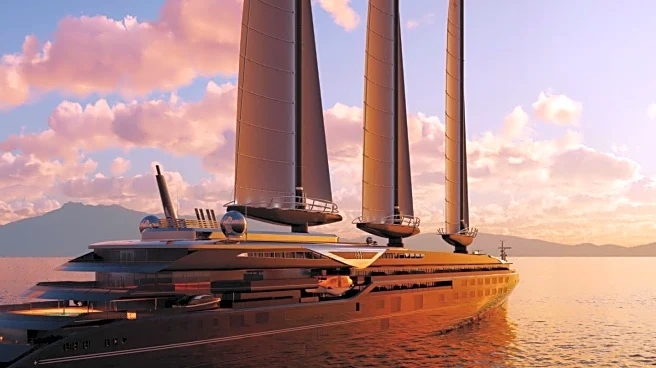What's Happening?
Leah Mackenzie and her husband Kyle have spent nearly a decade living aboard a sailboat, traveling the world to escape the pressures of modern life. Their journey, which began eight years ago, has taken them to 22 countries, including remote destinations like the Tuamotus archipelago and Vanuatu. The couple's lifestyle recently gained viral attention after Mackenzie shared their experiences on Reddit. They have made their sailboat self-sufficient with upgrades like solar panels and a water maker, allowing them to live independently at sea. Despite challenges such as steering failures and hurricane threats, Mackenzie describes the experience as transformative, offering cultural exchanges and pristine environments.
Why It's Important?
This story highlights a growing trend of individuals seeking alternative lifestyles that prioritize freedom and self-sufficiency over traditional career paths. Mackenzie and Kyle's journey underscores the appeal of living unconventionally, which can lead to personal growth and unique experiences. Their adventure also reflects broader societal shifts towards valuing experiences over material possessions, influencing industries such as travel and tourism. As more people explore similar paths, there could be increased demand for services and products that support off-grid living and sustainable travel.
What's Next?
The couple plans to continue their journey, with future destinations including Papua New Guinea, Indonesia, and Japan. Their ongoing travels may inspire others to consider similar lifestyle changes, potentially impacting the travel industry and encouraging innovations in sustainable living solutions. As they navigate new regions, they may face additional challenges related to international regulations and cultural differences, requiring adaptability and resilience.
Beyond the Headlines
Mackenzie and Kyle's story raises questions about the sustainability and environmental impact of long-term sailing. While their lifestyle is self-sufficient, it also involves navigating complex international waters and dealing with environmental challenges. Their experiences could contribute to discussions on sustainable travel practices and the role of individuals in preserving remote ecosystems.








